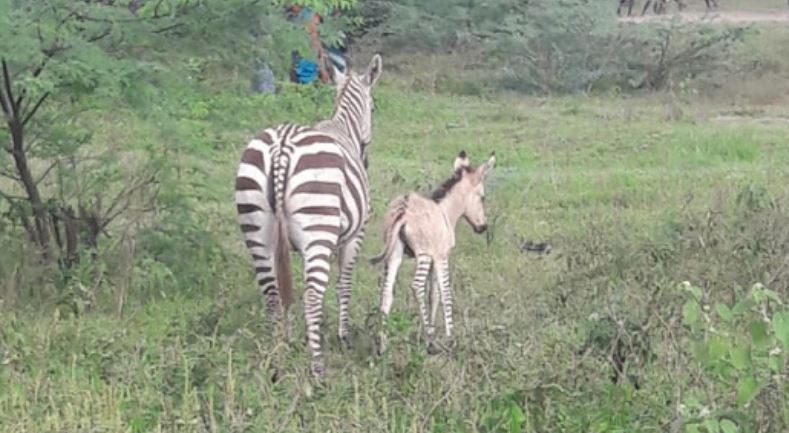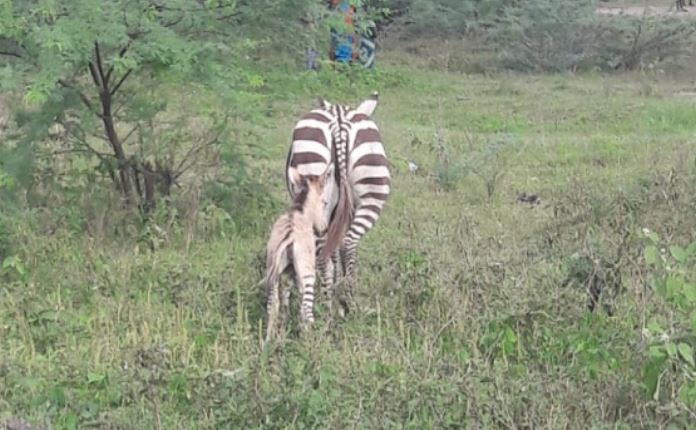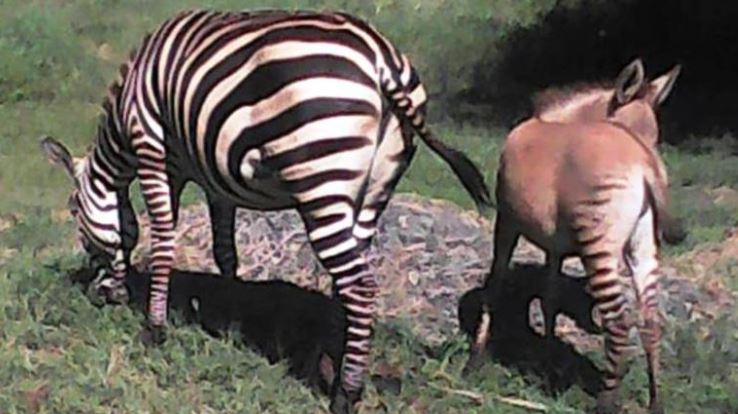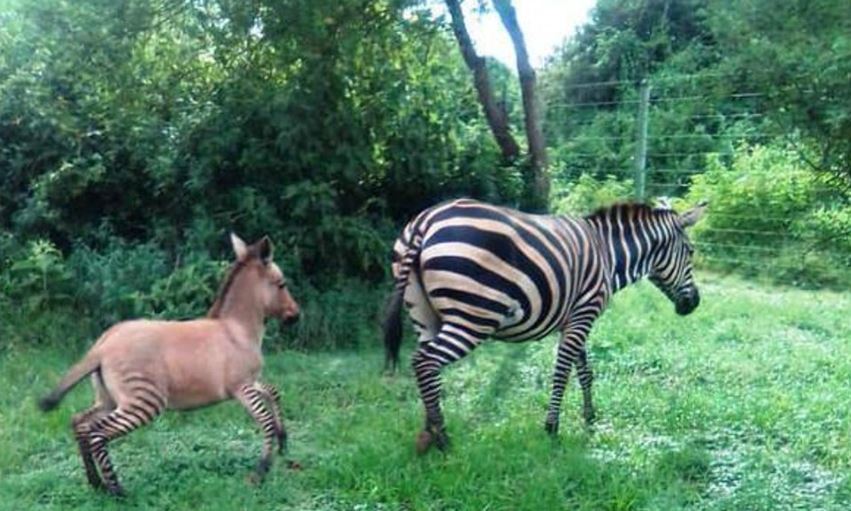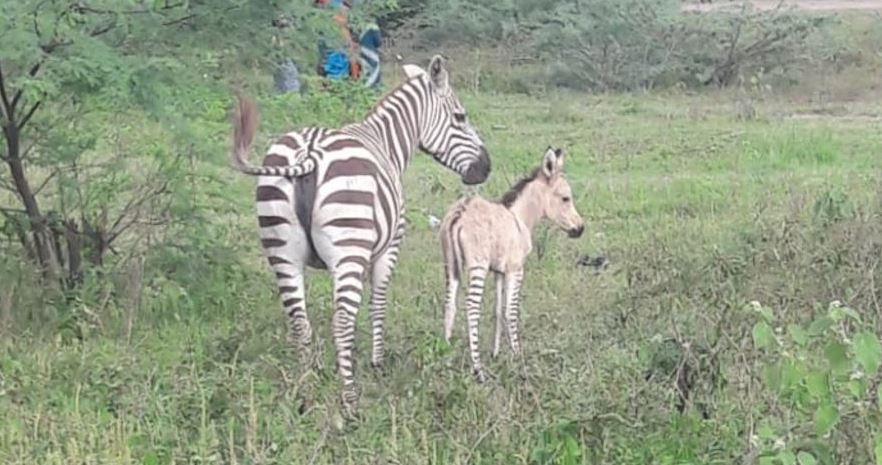
A zebra in Moa village, Witu Division of Lamu County gave birth to the rare hybrid cross on Saturday, December 12, leaving villagers in utter bemusement.
The zebra has been living in the compound of area chief Abdi Bocha, who believes the animal strayed from Boni Forest. The zebra has been grazing together with donkeys, cows, goats, and sheep, and appeared to get along with donkeys before getting closely acquainted with an amorous one.
“The zebra came to our homestead about a year and two months ago. We developed an interest towards it. After seeing that it was interacting well with our donkeys, we decided not to chase it away. Yesterday, it gave birth to a young one that is half zebra and half donkey. Everyone here is fascinated by the young creature,” Mr Bocha said on Sunday.
Mr Barjo Dokota, a pastoralist who has also been helping the chief raise the animals, said they contacted the animal conservancy in their area and the Kenya Wildlife Service (KWS) office in Lamu.
“It’s the first time it is happening in our village that a zebra gives birth while within people’s homestead. We’ve informed wildlife officials within Witu. They’re planning to take charge of the zonkey,” said Dokota.
Kenya Wildlife Service (KWS) Senior Warden for Lamu County Mr Mathias Mwavita said they had given the family permission to continue taking care of the zebra and its zonkey.
He said the service was encouraging locals to welcome harmless wild animals that stray into their homesteads.
“These cases are not unique, we’ve had such cases of zebras giving birth to half-donkeys, half-zebras in places like Maralal. I encourage citizens to entertain wild animals that are not harmful to their homes, particularly the zebras. There’s high competition in terms of animal habitat in Lamu and that’s why I encourage people to be welcoming those animals. I am sure the zebra fled from danger of being eaten by lions and other predators,” said Mr Mwavita.
Another baby zonkey was seen at the Tsavo East National Park in Kenya earlier this year.
Caregivers at the Sheldrick Wildlife Trust, an animal rescue and rehabilitation organization, reported the zonkey discovery in April. The mama zebra was assumed to have been impregnated after straying out of the national park and into a neighbouring village more than a year earlier.
“She made herself right at home there, becoming an honorary member of a local woman’s cattle herd,” said SWT.
The animal rescue group transferred the zebra and its young one to the Chyulu National Park, where they are said to be “thriving” due to relatively few predators, plentiful water, and lush vegetation.
“They seem quite content to spend their days grazing side-by-side, a sight that makes us all stop and marvel at the wonders of nature,” the SWT said.
Both zonkeys have the sturdy body of their donkey sires and the striped legs of their zebra mothers. Like mules, zonkeys are sterile creatures and cannot produce offspring of their own.
